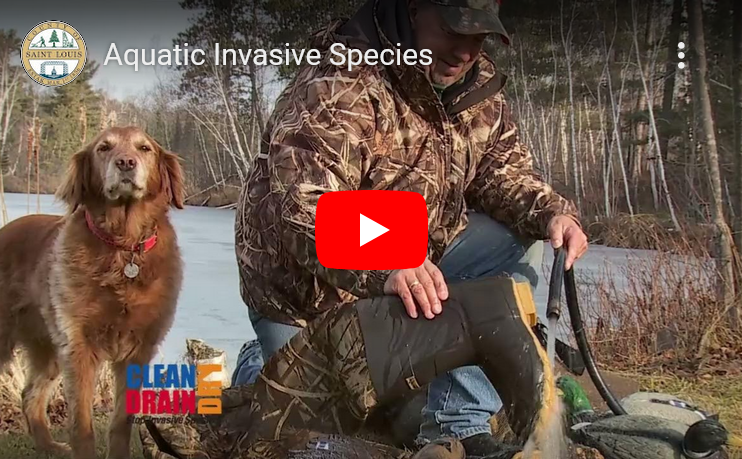St. Louis County Board to fund seven projects aimed at combatting aquatic invasive species

The St. Louis County Board has given preliminary approval to distribute $709,393 of state funds for seven projects that focus on preventing the introduction of Aquatic Invasive Species (AIS) or limiting their spread in lakes and rivers in St. Louis County. Commissioners unanimously approved the list of projects during their Committee of the Whole meeting Tuesday in Duluth.
The approved projects and funding include:
. $505,000 to the North St. Louis Soil and Water Conservation District to manage watercraft inspections, decontaminations and public education on more than two dozen lakes, including: Bassett, Bear Island, Big Bear, Birch, Burntside, Cadotte, Crane, Eagles Nest 2, Eagles Nest 3, Ely, Gilbert-Pit, Indian, Johnson, Kabetogama, Little Sturgeon, One Pine, Pelican, Perch, Salo, Shagawa, Side Lake, Sturgeon, Vermilion, Whiteface Reservoir, Whitewater, and White Iron Lakes.
. $135,585 to Wildlife Forever for marketing efforts for their Clean Drain Dry Initiative campaign aimed at public awareness and education, and behavioral change.
. $50,000 to Community Action Duluth for continued eradication, control, mapping, and monitoring of non-native phragmites in the St. Louis River Estuary.
. $30,000 to Canosia Township for watercraft inspections and public education on Pike Lake and Caribou Lake.
. $27,565 to Grand Lake Township for watercraft inspections on Caribou Lake.
. $26,000 to Vermilion Lake Association for continued watercraft inspections and cleaning; public awareness and education; habitat evaluation and threat assessment; early detection, response efforts and population management; and partnership development.
. $18,100 to Burntside Lake Association to promote the use of decontamination stations, improve public awareness and education about AIS, build early detection capabilities, and partnership development.
Final approval of the funding is expected during the Board meeting on February 27, in Clinton Township.
Each year, through the AIS Prevention Aid Program, the state legislature allocates funding to counties to be used to prevent the introduction or limit the spread of AIS. Through an application and proposal process, St. Louis County has sought out organizations to address AIS issues with multi-disciplinary, integrated solutions based on science, related to natural resources sustainability, and social and economic concerns.
Since 2014, when the AIS Prevention Aid Program started, St. Louis County has distributed more than $6 million to fund projects that address one or more of the seven categories and associated actions outlined in the St. Louis County AIS Prevention Plan.
The amount of funding received from the state is based on a formula that factors each county’s share of watercraft trailer launches and watercraft trailer parking spaces. Of Minnesota's 87 counties, St. Louis County has the second highest number of watercraft trailer launches (171) and the highest number of watercraft trailer parking spaces (1,444).
Aquatic invasive species disrupt the health of water bodies and pose a myriad of threats to natural, cultural and recreational resources of the region. Key AIS species of concern in St. Louis County include zebra and quagga mussels, starry stonewort, the New Zealand mudsnail, viral hemorrhagic septicemia (VHS), round and tubenose gobies, Eurasian ruffe, faucet snail, mystery snail, spiny water flea, Eurasian watermilfoil, and rusty crayfish.
More information about the county's AIS prevention plan and work that's been done to date is available online at stlouiscountymn.gov/AIS.



Member discussion